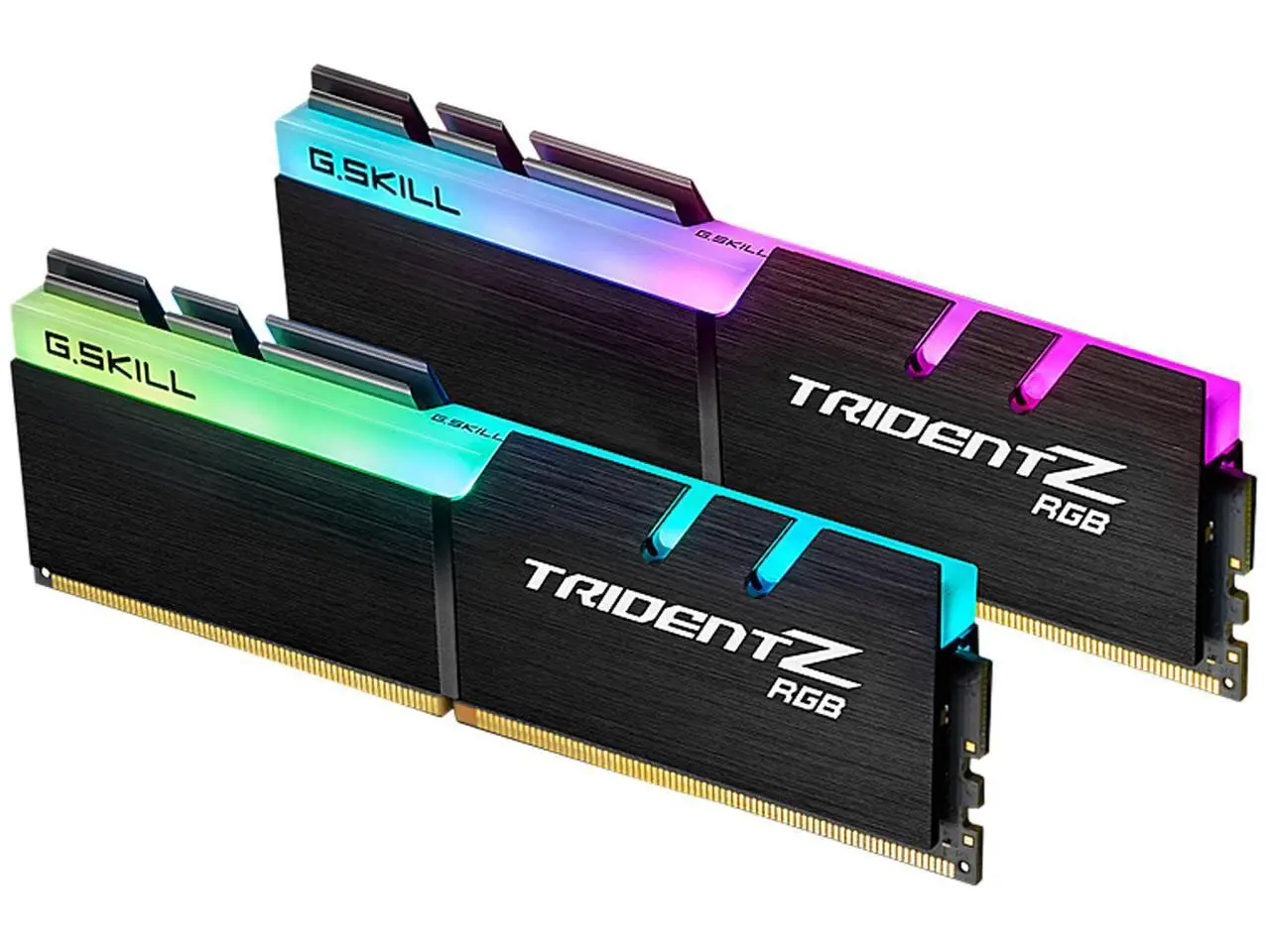When it comes to building a gaming PC, one of the critical considerations is the amount of RAM (Random Access Memory) to include in the system. RAM plays a vital role in overall gaming performance by providing fast and temporary storage for data that the CPU needs to access quickly. The question arises: Is 32 GB of RAM enough for gaming? Let’s delve into the details and explore this topic comprehensively.
Firstly, it’s important to understand that RAM primarily affects gaming performance by determining the system’s ability to handle multiple tasks simultaneously. When you’re gaming, your system not only needs to run the game itself but also handle various background processes, such as operating system functions, game launchers, voice chat applications, and web browsers.
For most modern games, the recommended RAM capacity falls within the range of 8 GB to 16 GB. This means that having 32 GB of RAM exceeds the recommended requirements by a significant margin. However, having more RAM than what is recommended doesn’t necessarily provide a noticeable performance boost unless specific circumstances warrant it.
That being said, there are a few scenarios where having 32 GB of RAM can prove beneficial for gaming. One such situation is when you engage in multitasking while gaming. If you like to have multiple applications running simultaneously, such as streaming software, voice chat programs, video capture software, or web browsers, having additional RAM can help ensure smooth performance across all these tasks.
Furthermore, if you are involved in content creation alongside gaming, such as video editing, 3D rendering, or streaming, having 32 GB of RAM can be advantageous. These tasks often require a significant amount of memory, and having more RAM enables smoother multitasking and faster rendering times.
Additionally, some games, especially those with large open worlds or extensive textures, can benefit from additional RAM. Games that load massive amounts of data into memory, such as open-world RPGs or simulation games, may perform better with more RAM available. This can result in faster loading times, fewer hiccups during gameplay, and improved overall smoothness.
It’s important to note that while having more RAM can be beneficial in certain scenarios, it’s not a guaranteed performance booster for all games. In most cases, having 16 GB of RAM is more than sufficient to handle current gaming demands. The key is to strike a balance between having enough RAM to support multitasking and ensuring that the rest of your system, including the CPU, GPU, and storage, are also up to par.
Moreover, it’s essential to consider the future-proofing aspect. As games continue to evolve and become more resource-intensive, the recommended system requirements may increase over time. By having 32 GB of RAM in your system, you provide yourself with headroom for future games that may demand more memory.
Things To Know
Whether or not 32GB of RAM is enough for gaming depends on the type of games you play and the settings you use. For most modern games, 16GB of RAM is sufficient. However, if you play demanding games at high settings, 32GB of RAM can provide a noticeable performance boost.
Here are some factors to consider when deciding how much RAM you need for gaming:
- The type of games you play: Some games, such as open-world RPGs and strategy games, are more demanding than others. If you play these types of games, you may need more RAM to get the best performance.
- The settings you use: Playing games at higher settings requires more RAM than playing at lower settings. If you want to play games at the highest possible settings, you will need more RAM.
- Your other applications: If you use other demanding applications while gaming, such as streaming software or video editing software, you will need more RAM.
If you are unsure how much RAM you need for gaming, it is always best to err on the side of caution and get more RAM than you think you need. This will ensure that you have a smooth gaming experience and that you can play games at the highest possible settings.
Here are some of the benefits of having 32GB of RAM for gaming:
- Smoother gameplay: Having more RAM can lead to smoother gameplay, especially in demanding games. This is because the game will have more memory to work with, which can reduce lag and stuttering.
- Faster loading times: Having more RAM can also lead to faster loading times for games. This is because the game will not have to load as much data from the hard drive, which can save you time.
- Increased multitasking capabilities: Having more RAM can also increase your multitasking capabilities. This is because you will be able to run more applications at the same time without experiencing performance issues.
If you are a serious gamer who wants the best possible experience, then 32GB of RAM is a worthwhile investment. However, if you are not a hardcore gamer and you are happy with the performance of your current system, then 16GB of RAM may be sufficient.
Games that need 32gb ram
Here are some games that recommend or require 32GB of RAM:
- Microsoft Flight Simulator
- Cities: Skylines
- Star Citizen
- Arma 3
- Total War: Warhammer III
- Red Dead Redemption 2
- Battlefield V
- Call of Duty: Modern Warfare
- Grand Theft Auto V
- Forza Horizon 5
These games are all very demanding and require a lot of system resources to run smoothly. If you want to play these games at the highest possible settings, you will need a system with at least 32GB of RAM.
It is important to note that these are just a few examples, and there are many other games that may require 32GB of RAM. If you are unsure whether or not a game will run on your system, it is always best to check the system requirements before you buy it.
Here are some tips for choosing a gaming PC with 32GB of RAM:
- Choose a high-end processor: The processor is the most important component for gaming, so you will need to choose a high-end processor with multiple cores and threads.
- Choose a high-end graphics card: The graphics card is also important for gaming, so you will need to choose a high-end graphics card with a lot of VRAM.
- Choose a motherboard with multiple RAM slots: You will need a motherboard with multiple RAM slots so that you can install 32GB of RAM.
- Choose a power supply with enough wattage: You will need a power supply with enough wattage to power your system, including the processor, graphics card, and RAM.
If you are serious about gaming, then it is worth investing in a system with 32GB of RAM. This will ensure that you have a smooth gaming experience and that you can play games at the highest possible settings.
Is 32 gb ram enough for gaming?
Yes, 32 GB of RAM is generally more than enough for gaming. Most modern games require 8 GB to 16 GB of RAM for smooth gameplay. Having 32 GB of RAM provides a comfortable buffer and allows for smooth multitasking while gaming.
With 32 GB of RAM, you’ll have enough memory to run the game smoothly while also having room for background processes, such as voice chat applications, streaming software, or web browsers. It can also help with faster loading times, especially when playing games with large open worlds or extensive textures.
However, it’s important to note that while 32 GB of RAM is more than sufficient for gaming, it may not provide a significant performance boost over 16 GB of RAM unless you’re running multiple resource-intensive applications simultaneously or engaging in content creation tasks alongside gaming.
Additionally, it’s crucial to ensure that the rest of your gaming system, including the CPU, GPU, and storage, are also up to par for optimal gaming performance. A balanced system with a powerful CPU and GPU, along with sufficient RAM, will deliver the best gaming experience.
Conclusion
In conclusion, while 32 GB of RAM is more than enough for gaming, it may not offer a significant performance boost over 16 GB unless you engage in heavy multitasking, content creation tasks, or play games that specifically benefit from additional memory. It’s crucial to strike a balance between having enough RAM to support your desired multitasking needs and ensuring that other components of your gaming system, such as the CPU and GPU, are also adequately powerful. Ultimately, consider your specific requirements, future-proofing needs, and budget when deciding on the amount of RAM to include in your gaming setup.

